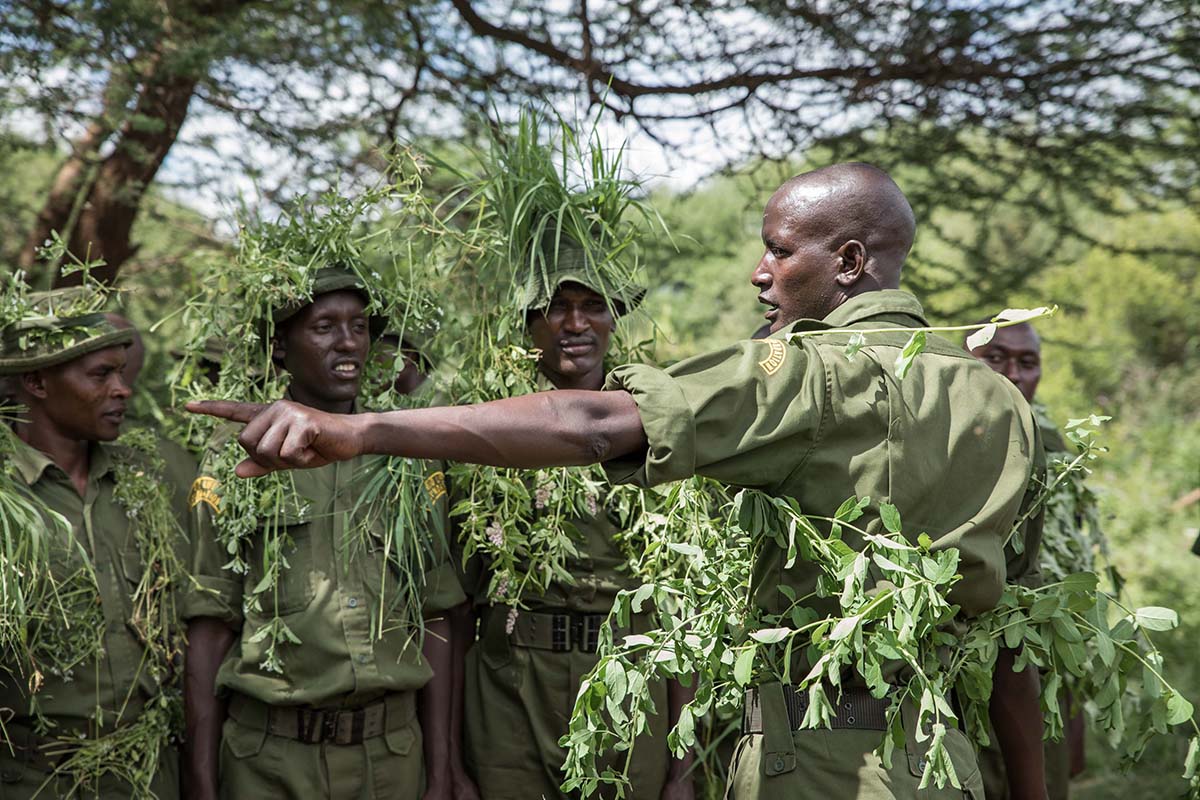 Big Life’s rangers all come from the local Maasai community and bring with them the kind of bush skills that can only be acquired from experience. This head start in their career as a ranger is essential, but these skills need to be built upon in order to do their jobs safely and successfully in an official capacity. Additional training in standard operating procedures, scout skills, field craft, interviewing and investigation, first aid, forensics, technical skills, navigation, equipment use and maintenance, and monitoring are all vital to their daily duties.
Big Life’s rangers all come from the local Maasai community and bring with them the kind of bush skills that can only be acquired from experience. This head start in their career as a ranger is essential, but these skills need to be built upon in order to do their jobs safely and successfully in an official capacity. Additional training in standard operating procedures, scout skills, field craft, interviewing and investigation, first aid, forensics, technical skills, navigation, equipment use and maintenance, and monitoring are all vital to their daily duties.
Big Life rangers undergo an initial three-week training course at the Kenya Wildlife Service (KWS) Training School, which is required by Kenya’s Wildlife Management Act. However, ongoing refresher training is critical for both performance and morale. Big Life determined that the best way to maintain an effectively trained ranger force is to facilitate ongoing in-house training. Several years ago, Big Life received funding to build facilities for the Amboseli Conservation Academy (ACA), an internally managed training facility which can accommodate 30 rangers in training at one time. In addition to formal training programs, Big Life also collaborates with other partner organizations such as the Pangolin Project to train rangers on identifying pangolin signs and even how to properly handle these sensitive animals should they confiscate one from a wildlife trafficking arrest.
The goal of this kind of supplementary training is to minimize ranger injuries, to maintain zero poaching incidents, and to have wildlife crime prosecution cases successfully resolved. As a testament to the success of this work, within our area of operation, 0 endangered elephants have been killed by poachers for 4+ years, 0 critically endangered black rhinos have been killed by poachers in 6+ years, and many wildlife populations are rebounding. All of this success would be nearly impossible without investing in our rangers.
We are grateful to our donors and partners who help facilitate ranger training, including: Lead Ranger, the Amboseli Tsavo Community Wildlife Ranger Association (ATCWRA), and the Kenya Wildlife Service.
